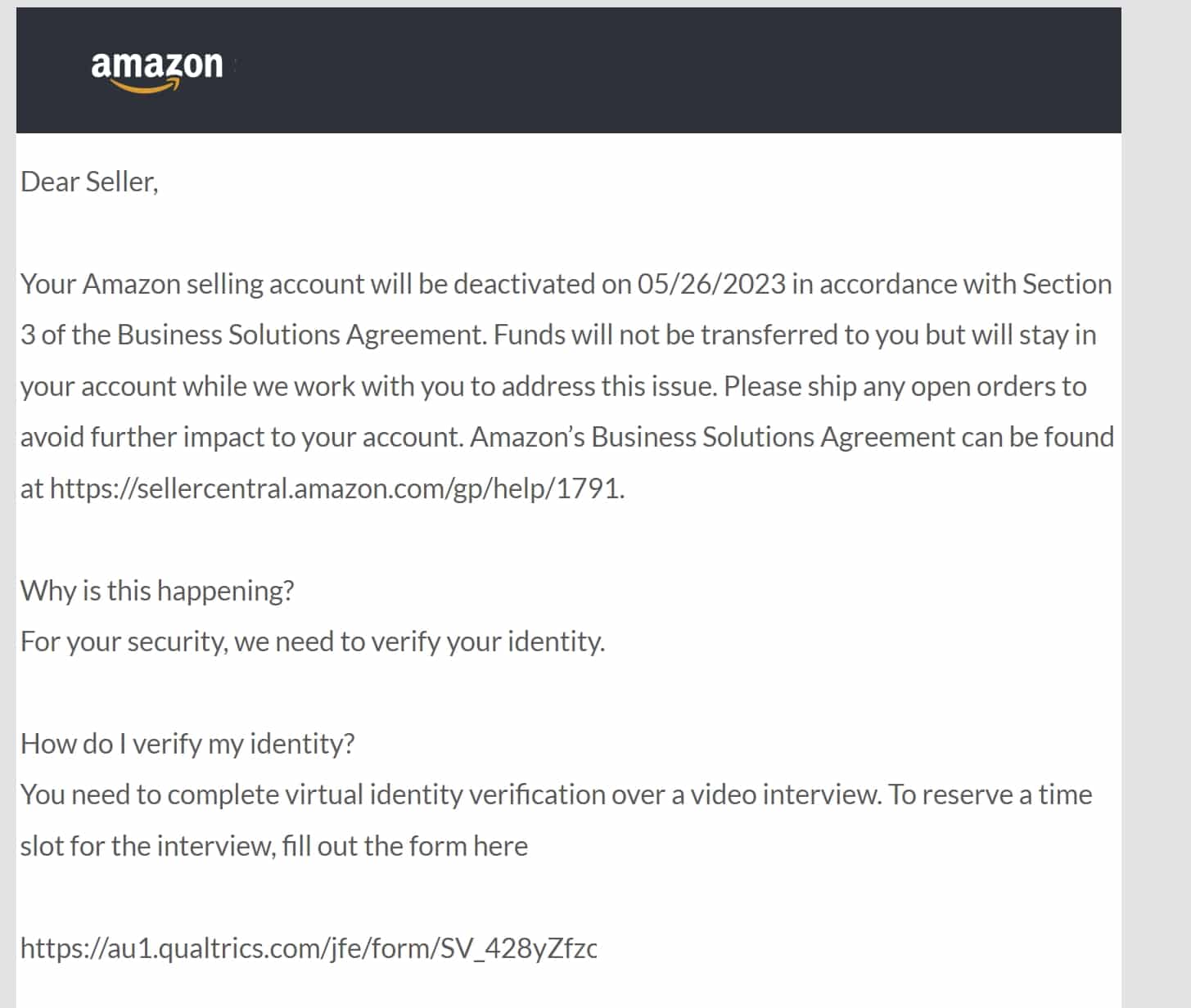Amazon Seller Verification – How to Do It Correctly
Updated: June 15, 2023

In 2023, Amazon has been rolling out a barrage of seller verification checks, requiring sellers to do everything from uploading identity verification documents to arranging virtual interviews to verify their identity. The measures are in response to the US Inform Act, which requires large marketplaces to collect and verify information about third-party sellers on an annual basis.
In this article, we'll discuss why Amazon does these verification checks and what will be required.
How Do You Verify Your Amazon Account?
Amazon released a notice on May 10, 2023, letting sellers know they'll be required to “collect, verify, and disclose information about their businesses.” In a nutshell, sellers may be required to verify some of the following information:
- Government ID
- Business Address
- Phone number
- Bank Information
- Tax ID
Most sellers had to provide this information to open an account, but Amazon is taking it one step further and requiring many sellers to schedule video interviews to verify this information. Video verification interviews generally require the seller to state the name of the person who registered the account, the information provided at the of registration, read an ID card, and verify certain activities on the account (e.g., the types of products sold).
These verifications only cover sellers who “in any continuous 12-month period during the previous 24 months, have sold 200 or more new or unused consumer products and have had $5,000 or more in gross revenues.”
What Happens if You Don't Verify Your Account?
Amazon initially caused major angst amongst sellers because of the relatively short amount of notice they were given as well as the emails they sent to sellers, threatening account deactivation.
If you do not verify your account within the time limit, Amazon is currently taking the act of withholding funds as opposed to a full account suspension. Further, some have reported restrictions on other account actions such as editing products.

As of June 2023, sellers were given approximately a month to verify their documentation before actions against their account and/or funds were taken.
What Happens if My Information Isn't Accurate within Seller Central?
For most sellers, compliance with the US Inform Act will be bothersome but not problematic as their information is accurate within Seller Central. For others, however, compliance could be an issue both for both good and bad actors. For example, these sellers may run into trouble for non-compliance with the Act:
- Sellers who have outdated information in Seller Central for a variety of reasons, including old addresses and phone numbers
- Sellers who are using personal bank accounts in conjunction with a business
- Sellers that opened accounts under fraudulent business identities
- Sellers that opened accounts with fraudulent personal identities
For sellers with outdated information, it appears Amazon is allowing them to simply update this information immediately and without any repercussions.
Amazon has apparently been taking a fairly lenient approach to verifying account information. For example, many sellers have personal bank accounts they use for their businesses. As of June 2023, Amazon is allowing a personal bank account to verify a business account. They also appear to be allowing some tolerance for address information not matching across documentation as long as the business address is verified by a mailed post card.
The biggest problem will pertain to sellers who have opened seller accounts with fraudulent identities, either business or personal (reducing such sellers is essentially the goal of the US Inform Act). This means trouble for many black hat sellers, especially many overseas/Chinese sellers who have been known to often operate many seller accounts opened with fraudulent information. In some of the WeChat Chinese Amazon groups I follow, there has been a lot of discussion about this issue.
What Is the US Inform Act?
The US Inform Act was passed on November 17, 2022, but doesn't come into effect until June 2023. The Act's goal is to increase transparency in online marketplaces by requiring large online platforms with over $100 million in revenue, like Amazon, to disclose certain information about their third-party sellers to consumers.
Under the Act, online marketplaces with at least 100 million monthly active users are required to disclose the following information about their third-party sellers to consumers:
- The name and contact information of the seller
- Whether the seller is located in the United States or abroad
- Whether the seller is registered with the platform
- Whether the seller has been the subject of any enforcement actions by any government agency or consumer protection organization
- Any additional information that the Federal Trade Commission determines would be useful for consumers
Essentially, the act is looking to diminish the number of counterfeit products and overall bad actors in various marketplaces.
Conclusion
In the long run, Amazon verifying seller identity more stringently is likely a good thing for sellers playing by the rules. The major issue right now is the speed with which Amazon is rolling out these mandatory identity checks, essentially trying to verify potentially millions of sellers within just a few weeks. In the short run, it could mean a lot of potential disruption and headaches for sellers.



